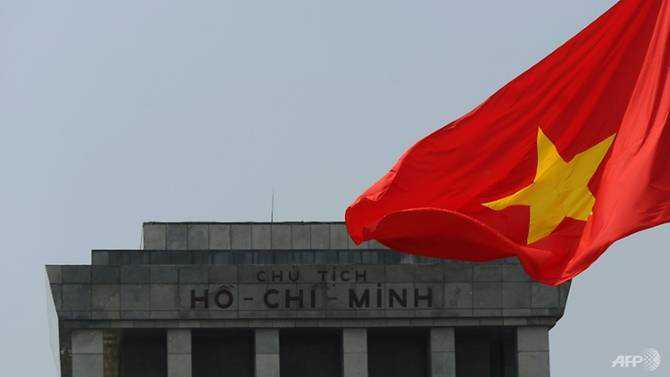Vietnam leadership wrangling heats up as Communist Party meets
14 December, 2020

As Vietnam's ruling Communist Party started a week-long meeting on Monday (Dec 14), discussion has intensified outrageous leadership that may emerge and set the tone for the next five years in the fast-developing Southeast Asian country.
A government statement said the most recent plenum would include discussion of "personnel documents" - a euphemism for deciding who holds the main posts, which is formally assigned at the Communist Party Congress due in January.
The congress will condition policy five years after General Secretary Nguyen Phu Trong, a celebration ideologue, emerged to lead an anti-corruption drive after ejecting a former leadership that had closer ties to business.
"No matter who'll be elected in to the new leadership, there will be more continuity than change, and Vietnam will maintain steadily its current trajectory," said Le Hong Hiep, a fellow at Singapore's ISEAS Yusof Ishak Institute.
Trong himself, one of the most effective Vietnamese politicians in years, may retain a significant role, but questions have already been asked over the 76-year-old's health as he has came out frail at events lately.
Over the last congress in 2016, Trong led a proceed to dispose previous prime minister Nguyen Tan Dung. Then in 2018, he inherited the presidential role furthermore to his Communist Party chief position after the incumbent president died.
A number of the highest profile scalps to have been claimed by Trong's anti-corruption crackdown have been allies of the past premier. Most analysts anticipate the crackdown will continue after the congress.
NO STICK OUT CANDIDATE
Vietnam has no paramount ruler and is officially led by four "pillars": A president, primary minister, the principle of its Communist Party and the national assembly chair.
Theoretically, who can ascend to the best levels of Vietnamese politics is governed by rules and limits on age and origin. There's never been a general secretary who was not from the northern half of Vietnam, for instance, and politburo members older than 65 should retire.
The truth is, the highly secretive process revolves around building a consensus and vying for control of the party's strong decision-making politburo. Exceptions to those rules tend to be therefore granted, especially if a consensus at the top candidates can't be reached.
Another question surrounds the fate of Prime Minister Nguyen Xuan Phuc, who could struggle for another term or seek to help expand climb the party ranks.
The 66-year-old has represented Hanoi on the world stage as the facial skin of Vietnam's many trade deals and pushed for regional multilateralism as chair of the Association of Southeast Asian Nations (ASEAN) this season.
An agreeable face to organization, Phuc has boosted his financial credentials by keeping Vietnam on track to create GDP growth of 2 per cent to 3 % this year, regardless of the catastrophic effects of the COVID-19 pandemic on the global economy.
Phuc has been touted as a probable contender for party chief, but other prospects with closer ties to Trong and Vietnam's powerful security ministry and military may also be lobbying for the positioning.
Linh Nguyen, a Singapore-based analyst at risk consultancy Control Risks, said the outcome of this congress will likely be more unpredictable than previous years.
"The primary reason is that unlike in previous congresses, we haven't seen very plainly the figures for top leadership positions this time," Nguyen said.
"None of the current potential candidates are really standing out, most of them will be overage, and we might see extra political infighting among several factions nearer to the date".
Source:
TAG(s):
